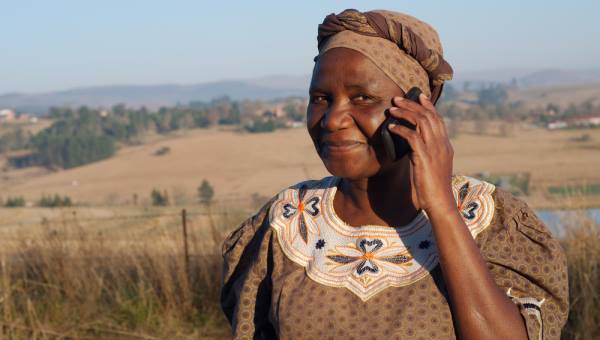Africa's women and girls stake their claim in digital future
Africa's women and girls stake their claim in digital future

In terms of technology, women in some regions in Africa are among the most marginalised globally, according to a 2015 global report on Women's Rights Online.
The World Wide Web Foundation, which is among the organisers of the first Africa Summit on Women and Girls in Technology taking place in Accra this week, found that women in Nairobi and Kampala have the highest gender gaps in internet access and the related empowerment opportunities worldwide at 20% and 21% respectively.
The 2016 Africa Summit on Women and Girls in Technology is supported by UN Women, the African Development Bank (AfDB) and the Ghana-India Kofi Annan Centre of Excellence in ICT.
Dr Omobola Johnson, Chairperson of the Alliance for Affordable Internet (A4AI) and panelist at the Summit, which kicks off today, said, "We are developing an app actually, working with a number of developers and what led to that is we found that an urban woman who lives in Lagos is interested in career advice or tips, financial management, how to invest her money, she is also interested in fashion and lifestyle and so we tailored the app to cater for that, and those women are willing to pay for that sort of content. When going to the rural areas, there are things that urban women might already know about - like hygiene, maternal health and things to do with agriculture, but those things are (what is) usually relevant to the rural women and so we try to create content that is actually related to that."
"By doing that you can actually get them to come onto the internet because they know there is something there for them. I'm sure you could segment even further into younger urban women, older urban women etc. and that segmentation is really important because right now we talk as if all women live in rural areas and they are not digitally literate. That is not quite true, but the fact of the matter is that we need to get more women on the internet and that segmentation is key," Johnson continued.
Zimkhita Buwa, Account manager at Britehouse: Division of Dimension Data and winner of the Outstanding Women in ICT Award at the inaugural Women in ICT – Partnership for Change Awards last month agrees that much more needs to be done to empower women working in the ICT industry.
"Our industry is so dynamic, and there are such amazing opportunities available to women in this space. I think it's important for women to come into the sector to make use of the opportunities and stay in the sector. There's a lot of work that still needs to be done and a lot of support that we as women have to give to those who are coming in. It's about mentorship. It's making sure that we open doors for other women and not have that 'I'm the only one' syndrome. We must lift each other up so that we can all prosper and grow."
Research by the World Wide Web Foundation also found that education makes a big difference and the organisation recommends that primary and secondary school curricula in African countries include ICT literacy basics, in order to take take advantage of near-100% primary enrolment rates and open up digital opportunities for all Africans.